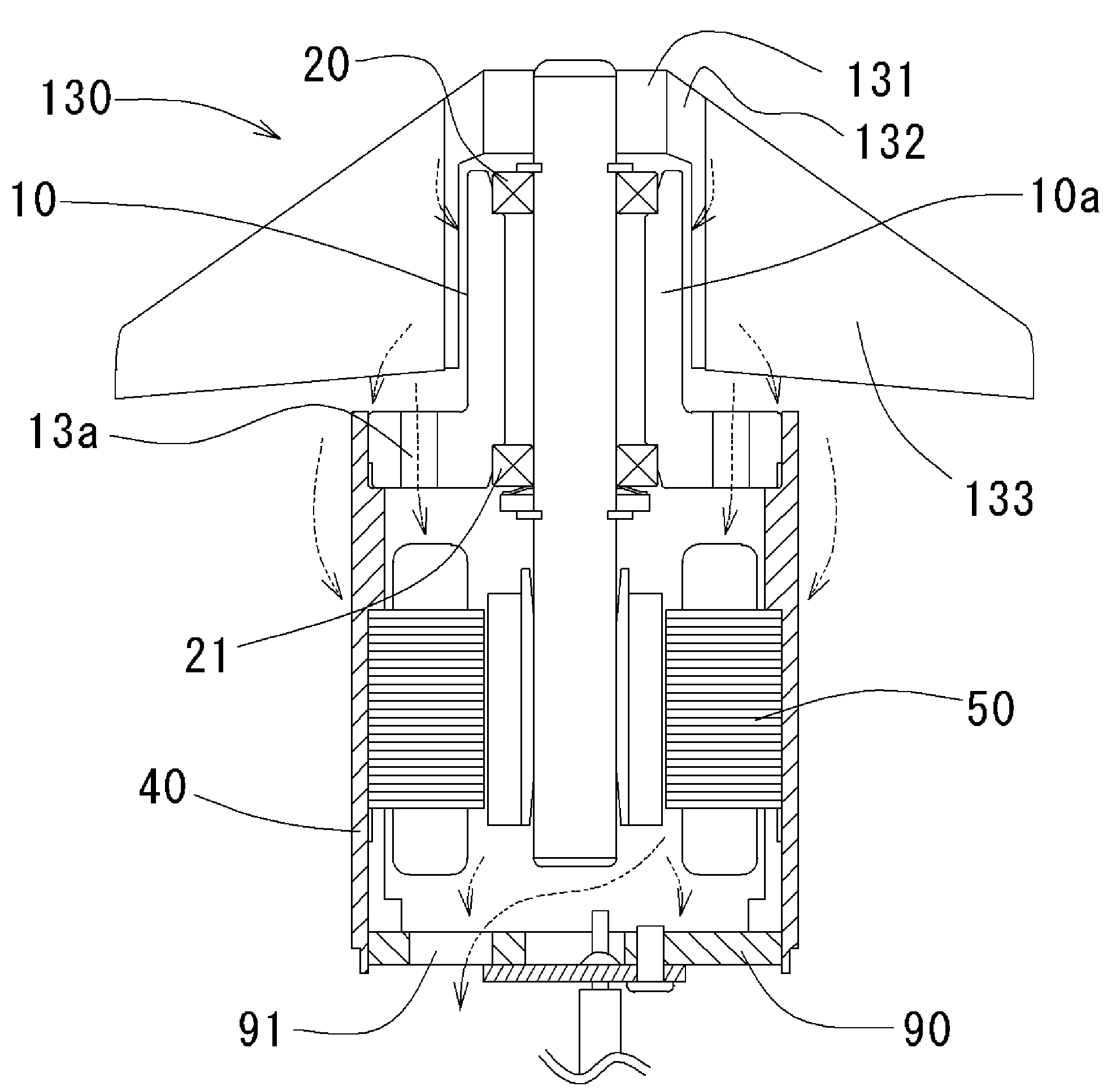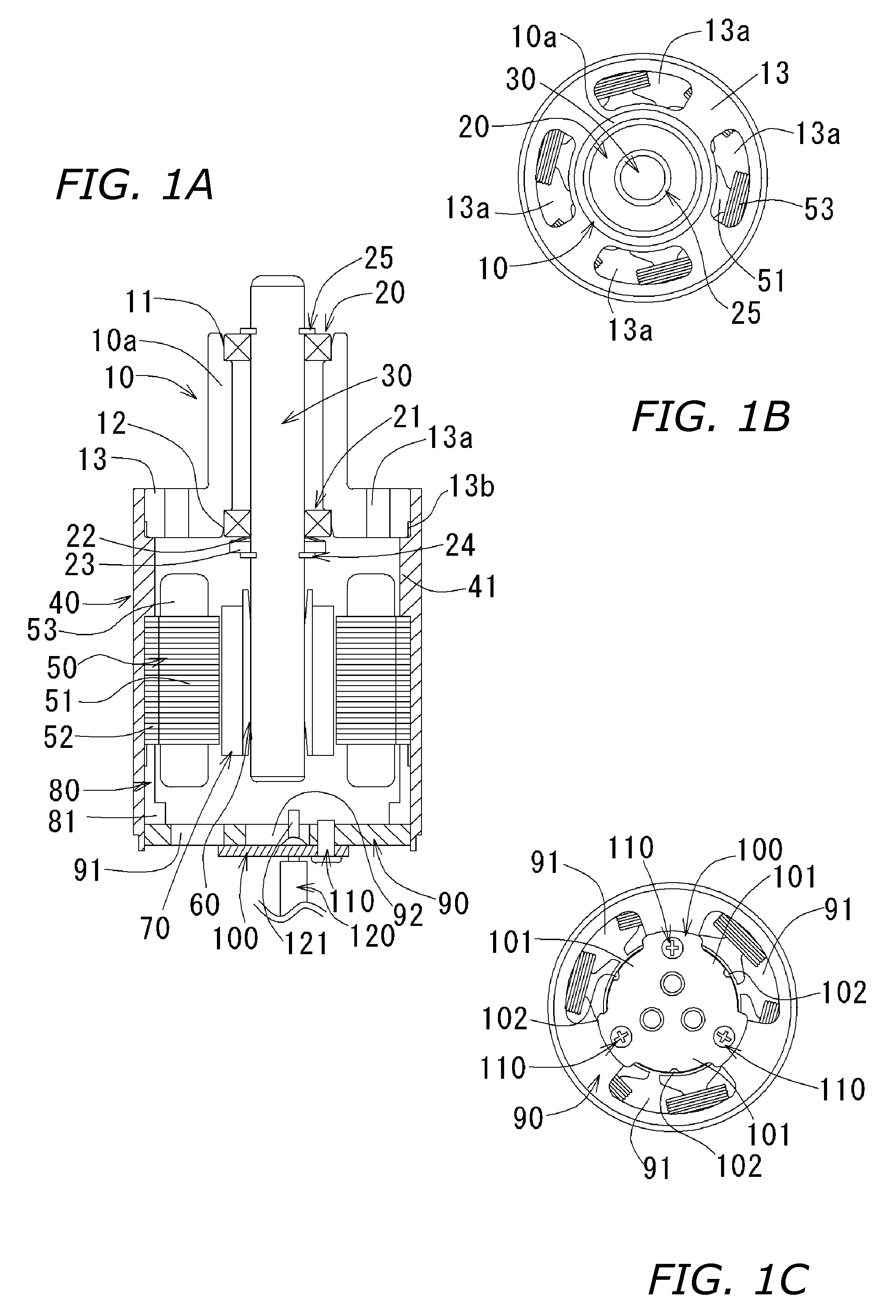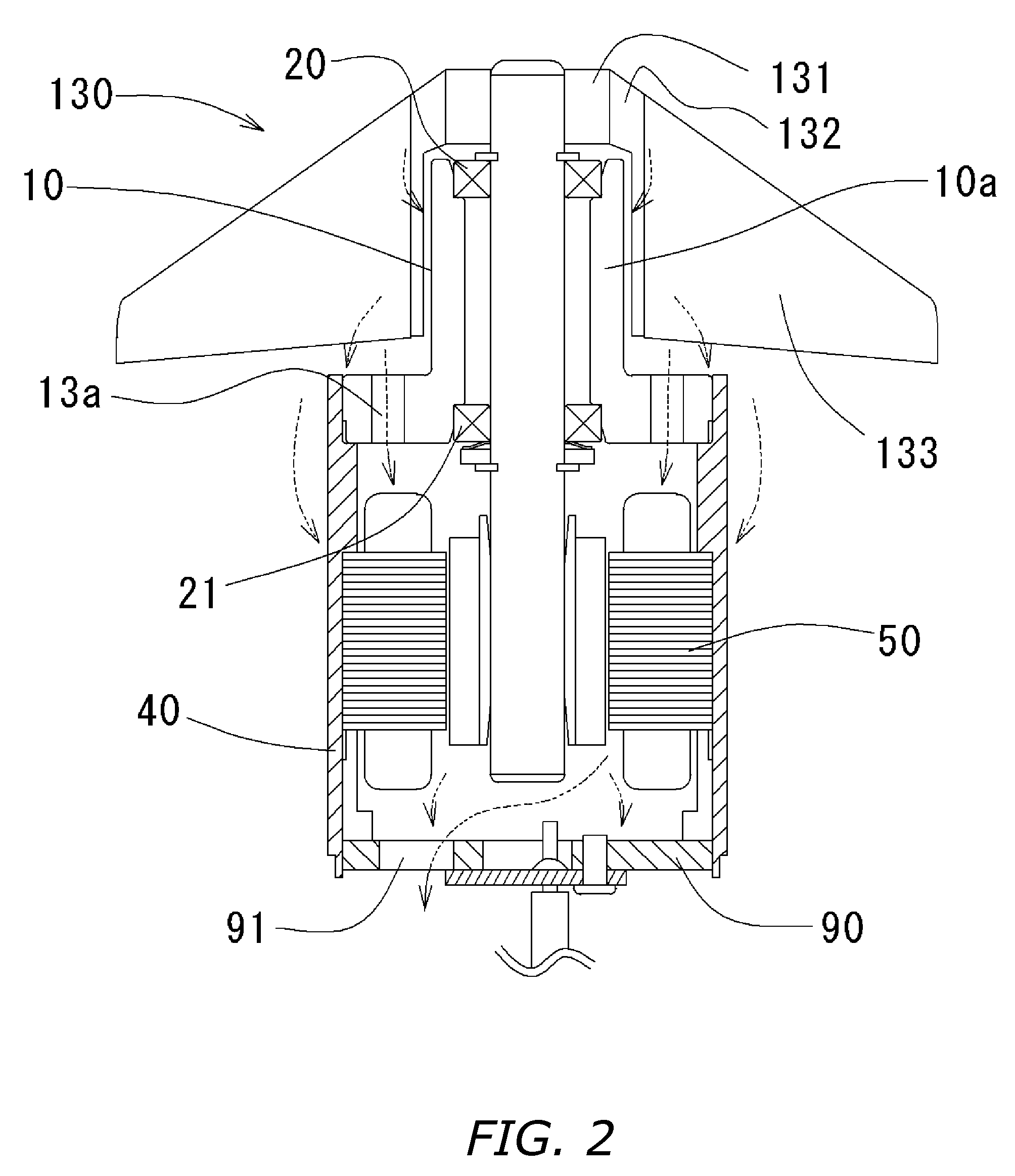Axial fan
a technology of axial fans and fans, which is applied in the direction of magnetic circuit rotating parts, piston pumps, magnetic circuit shapes/forms/construction, etc., can solve the problems of increasing heat emission from the motor itself, stators emitting heat, and consequently shortening the bearing lifespan, so as to prolong the life of stator coils and prolong the bearing lifespan. , the effect of high airflow volum
- Summary
- Abstract
- Description
- Claims
- Application Information
AI Technical Summary
Benefits of technology
Problems solved by technology
Method used
Image
Examples
Embodiment Construction
[0023]FIGS. 1A to 1C illustrate one embodiment of a brushless motor according to the present invention. Throughout the specification, the up / down directions are defined using the up / down orientations along the shaft axis in FIG. 1A. Accordingly, FIG. 1A presents a schematic sectional view of the motor taken along the shaft axis, FIG. 1B, an upper-side view, and FIG. 1C, an underside view.
[0024]A bearing retainer 10 in FIG. 1A is made of die-cast aluminum, and is rendered in a hollow cylindroid form. The bearing retainer 10 has a bearing-retaining cylinder 10a for retaining later-described bearings. The bearing-retaining cylinder 10a has respective recesses 11 and 12 at the upper and lower ends of the bearing-retaining cylinder 10a. These recesses 11 and 12 are die-cast and thereafter machine-processed to enhance the coaxial precision. These recesses 11 and 12 accommodate respective ball bearings 20 and 21, which are press-fit into the recesses. The present structure enables the ball...
PUM
 Login to View More
Login to View More Abstract
Description
Claims
Application Information
 Login to View More
Login to View More - R&D
- Intellectual Property
- Life Sciences
- Materials
- Tech Scout
- Unparalleled Data Quality
- Higher Quality Content
- 60% Fewer Hallucinations
Browse by: Latest US Patents, China's latest patents, Technical Efficacy Thesaurus, Application Domain, Technology Topic, Popular Technical Reports.
© 2025 PatSnap. All rights reserved.Legal|Privacy policy|Modern Slavery Act Transparency Statement|Sitemap|About US| Contact US: help@patsnap.com



